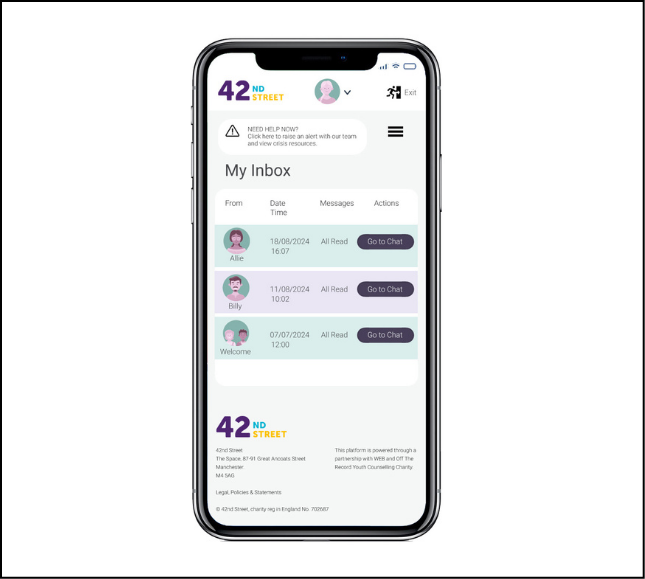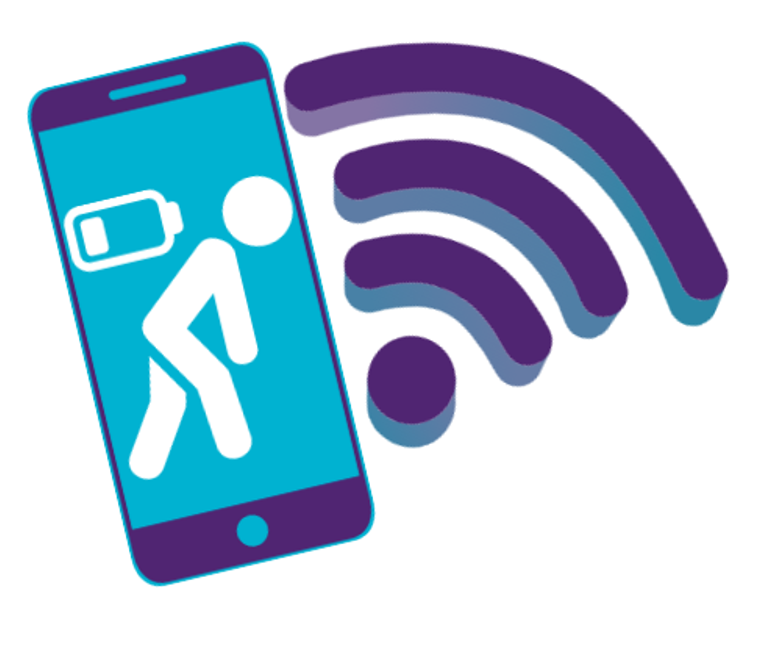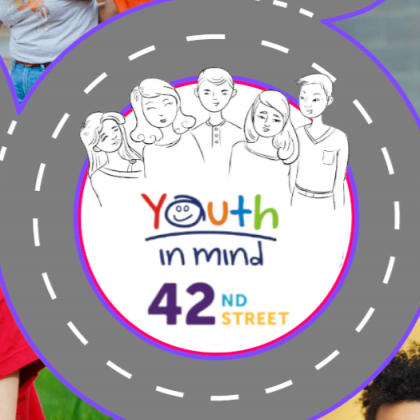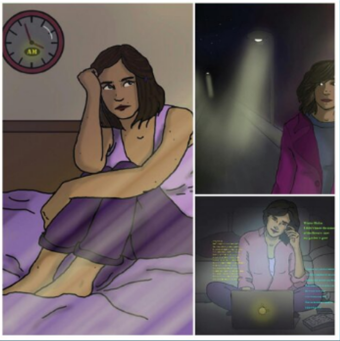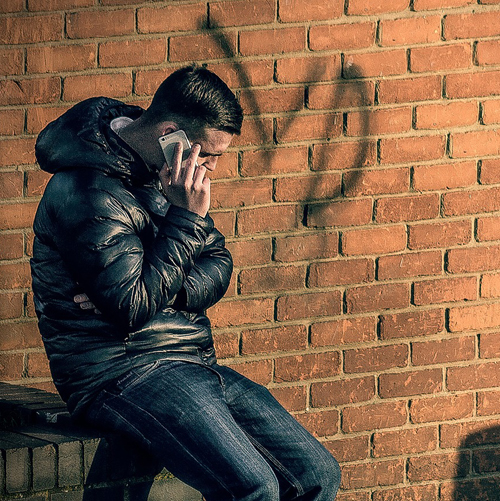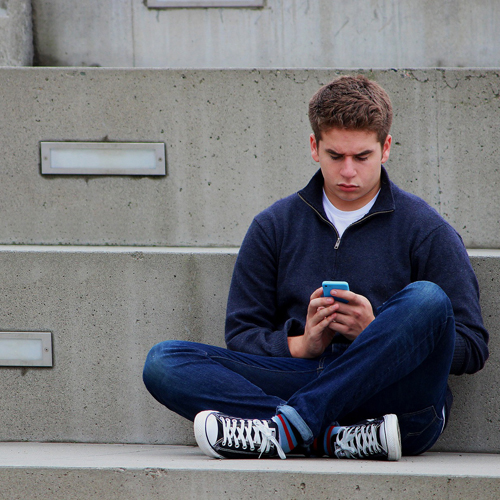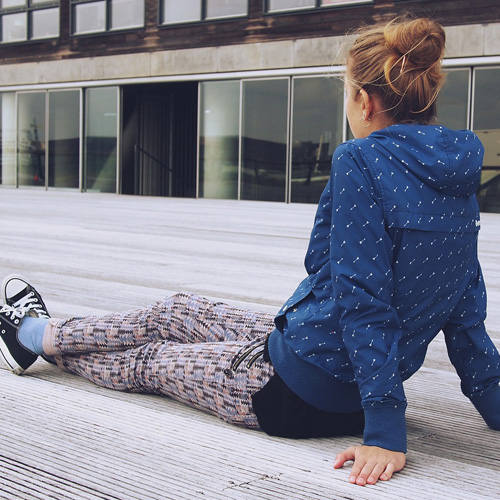Experiencing Loneliness and Isolation
Reading Time: 4 minutes
What is it?
Feelings of loneliness are different for everyone and can happen at any time. For some people, being surrounded by others can still be a lonely experience, especially when we feel isolated from conversation or do not feel understood by those around us. Isolation is not always a negative feeling- sometimes we can enjoy spending time apart from other people, and moments of isolation are a part of all of our lives. Nonetheless, when this turns into loneliness, it tends to be a negative and difficult emotion. We can feel lonely when our needs for social interaction or relationships go unfulfilled.
In the coronavirus pandemic, many people have experienced loneliness as our face-to-face socialising has been put on pause and we have been forced to isolate. The pandemic has made it really difficult for us to reach out to friends, spend time doing things we love, and feel the usual levels of support and care from those around us. All of this can make feeling socially fulfilled and understood a lot more of a challenge.
Being lonely can feel like there is no-one in your life to reach out to, or that those around you do not understand or care for you. These feelings are can be linked to other mental health issues including anxiety, depression, stress and issues with self-esteem. Feelings of loneliness may include ...
- Anxiety/Social Anxiety,
- Depression,
- Low self-esteem,
- Issues with sleep,
- Stress,
- Self-Harm,
- Eating Disorders
Why do we get lonely?
Different people need different levels of social interaction. Not everyone will feel lonely in the same situations, and for some people, prolonged isolation can still feel like a positive feeling. There are a number of different circumstances that may increase feelings of loneliness:
- Experiencing discrimination on the grounds of race, sexual orientation, gender,
- Exclusion from social activities due to discrimination, mobility issues or a lack of money to take part,
- Estrangement from family members or friends,
- Experiencing the loss of family members or friends, and bereavement
- Being a single parent,
- Experiencing sexual or physical abuse,
- Experiencing other mental health issues,
- Experiencing a global pandemic!
What can help with these feelings?
It’s important to remember that you are not on your own in these feelings of loneliness. From time to time, everyone experiences social isolation, and in the global pandemic rates of loneliness have hugely increased. However, there are lots of different ways that you can begin to tackle your loneliness:
- Try something new, or find a class in something you know you enjoy. Meeting people with similar interests as you (even if its online right now) can be a really good way to overcome feelings of loneliness, and develop a new skill. Whether it’s painting, pottery, music or languages, online classes can give you an activity to work on whilst meeting new people.
- Get outside! Going on a walk by yourself or with some friends can help you feel more connected to the world around you, especially if you can get to a green space or park.
- Talking to family members, friends, or health professionals can alleviate feelings of loneliness- remember that everyone experiences loneliness from time to time, and it’s okay to talk about how you are feeling.
- Join a local community group, like a local reading group, gardening group or activist group. Committing yourself to a cause can help you connect with the wider world, meet new people, and learn about global issues.
- Peer support groups are a good way to get some help with these feelings. NHS and Mind both offer peer support groups where you can meet people in your local area, and speak about some of the ways you are feeling.
- Speak to your teacher, academic advisor, or colleagues. Studying and work can have a big impact on our mental health. If the people around you know that you are struggling, they may be able to help support you in your work.
- Try to work out if your phone and the technology in your life is making you feel less or more isolated. In lockdown, it can be really helpful to see other people’s lives and remind yourself that we are all working through this together, but it can also cause more anxiety, especially if you can’t currently be with your loved ones. Think about giving yourself a few hours without your phone, or not checking it first thing in the morning.
- Get into a good series or book. There’s absolutely no shame in getting a few blankets and treating yourself to an evening of rest. Get cosy, and get watching or reading, and get carried away by the storyline.
- Cook your favourite meal, and play your favourite songs. Again, treat yourself to an evening of favourites! Get your energy going with a bounce around the kitchen before sitting down for a delicious meal.
- You might find it helpful to join the Age UK befriending services. They work to pair up younger people with older people who are experiencing loneliness, a service which goes both ways- you could help someone out, whilst feeling a little less isolated.
If feelings of loneliness escalate or carry on and lead to depression, anxiety or stress, it is important to reach out to seek professional help.
Where to go for more support
- Mind run peer support groups where you can talk about your feelings of loneliness and other experiences.
- Reach out to Samaritans on 116 123, who can give you someone to talk to and help you work through these feelings. Samaritans can also help if these feelings of loneliness are making you feel like you can not keep yourself safe.
- Visit this Red Cross page for some information on loneliness, a podcast about technology and isolation, a feel-good playlist and some wellbeing activities.
- If you are in school or university, your place of study should offer access to mental health support. Student Services can be found through your student’s union. Check your University student services website for specific information on what your institution offers.
- Local support groups can be found on the governmental website where your local council can help you find the local support you need
- Your student’s union, or local Facebook group, should list different activities that you could get involved with. They also might link you to some local mutual aid groups, where you could meet members of your local community and support them with food deliveries, company or a walk.
- Skillshare offers some online classes, and the free app Duolingo can offer some good distraction whilst teaching you a new language! To find more classes for free, or with local community members, you may have to ask on local forums or around friends and family.
Readers could also be interested in:
Exploring Depression, Exploring Anxiety, Exploring Confidence and Self-Esteem, The Impact of COVID on Mental Health and Wellbeing,
Keywords: Loneliness, Isolation, Anxiety, Social Anxiety, Stress, COVID-19, Coronavirus, Lockdown,
By: Iona Taylor







